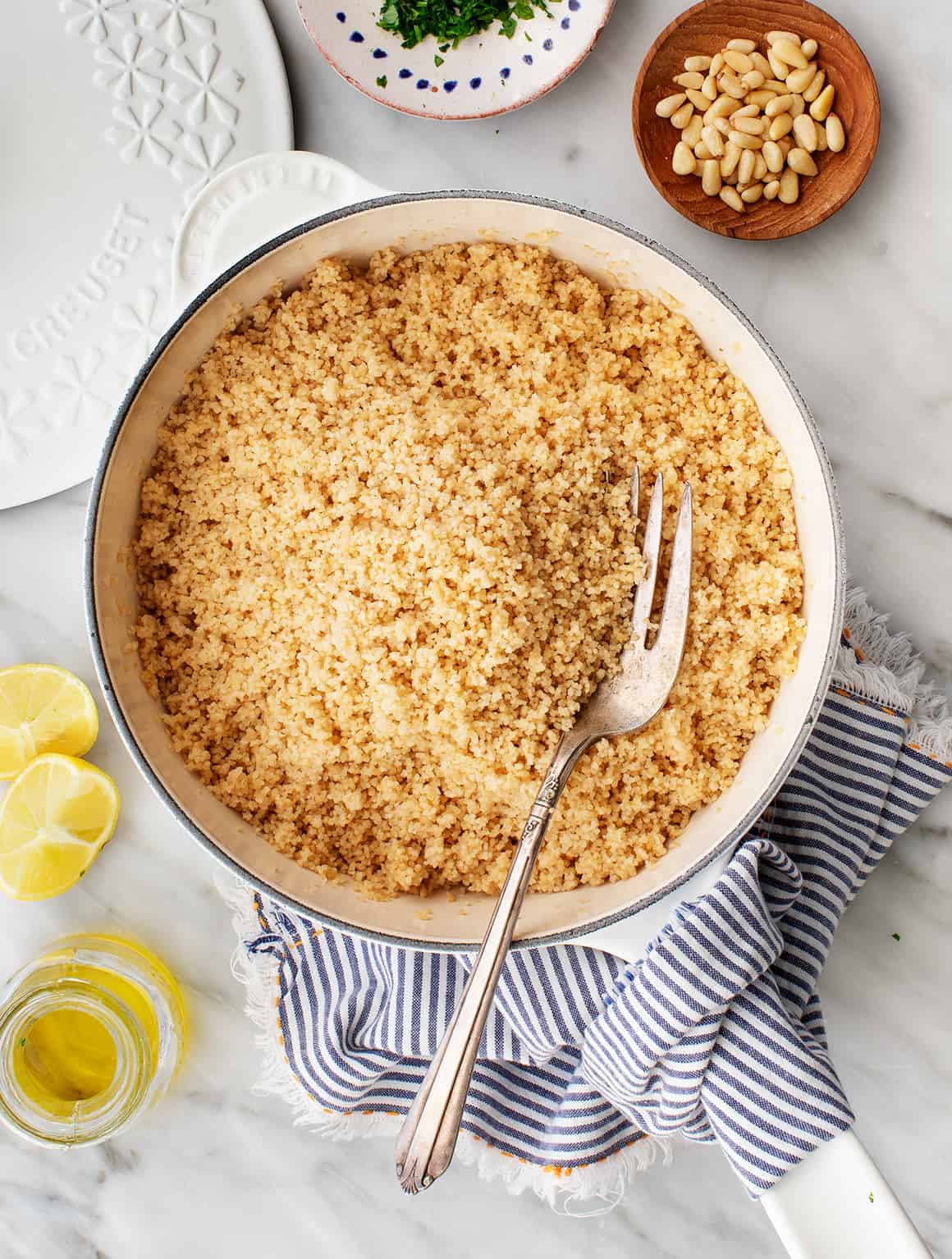Learn about the incredible health benefits of cuscus. Discover how this superfood can boost your health and well-being with these five amazing advantages.
Introduction
Cuscus, often known for its delightful texture and versatility, is much more than just a staple food in many cultures. This tiny grain packs a powerful nutritional punch, making it a superfood worth adding to your diet. In this article, we will explore the five incredible health benefits of cuscus and how incorporating it into your meals can positively impact your health.
Understanding Cuscus
What is Cuscus?
Cuscus, also known as couscous, is a traditional North African dish made from steamed semolina wheat. It’s a staple in many cultures due to its versatility and ease of preparation. Cuscus has a light, fluffy texture and a neutral taste, making it an ideal base for a variety of dishes.
Nutritional Profile
Cuscus is a nutrient-dense food that provides essential vitamins and minerals. A typical serving of cuscus contains:
- Carbohydrates: Providing energy for daily activities.
- Protein: Essential for muscle repair and growth.
- Fiber: Important for digestive health.
- Vitamins and Minerals: Including B vitamins, iron, and magnesium.
Culinary Uses
Cuscus is incredibly versatile and can be used in both savory and sweet dishes. It serves as an excellent base for salads, stews, and even desserts. Its quick cooking time and ability to absorb flavors make it a favorite in many kitchens around the world.
Health Benefits of Cuscus
Rich in Nutrients
Cuscus is packed with essential nutrients that support overall health. It’s an excellent source of B vitamins, which play a crucial role in energy production and brain function. Additionally, the iron in cuscus helps maintain healthy blood cells, while magnesium supports muscle and nerve function.
Supports Digestive Health
The high fiber content in cuscus aids in digestion by promoting regular bowel movements and preventing constipation. Fiber also helps maintain a healthy gut microbiome, which is essential for overall digestive health.
Boosts Immune System
Cuscus contains several antioxidants, including selenium, which help boost the immune system. These antioxidants protect the body from harmful free radicals, reducing the risk of chronic diseases and supporting overall well-being.
Promotes Heart Health
The combination of fiber, potassium, and magnesium in cuscus contributes to heart health. Fiber helps reduce cholesterol levels, while potassium and magnesium support healthy blood pressure levels. Together, these nutrients help reduce the risk of heart disease.
Aids in Weight Management
Cuscus is low in calories but high in protein and fiber, making it a great option for those looking to manage their weight. The protein helps build and repair muscles, while the fiber keeps you feeling full and satisfied, reducing the likelihood of overeating.
How to Incorporate Cuscus into Your Diet
Simple Recipes
Adding cuscus to your diet is easy with these simple recipes:
- Cuscus Salad: Combine cooked cuscus with fresh vegetables, herbs, and a light vinaigrette for a refreshing salad.
- Cuscus and Chickpea Stew: Simmer cuscus with chickpeas, tomatoes, and spices for a hearty and nutritious stew.
- Sweet Cuscus: Mix cooked cuscus with honey, dried fruits, and nuts for a delicious and healthy dessert.
Meal Planning Tips
Incorporating cuscus into your weekly meal plan can be simple and enjoyable. Cook a batch of cuscus at the beginning of the week and use it as a base for various dishes. This not only saves time but also ensures you have a nutritious option ready to go.
Combining with Other Superfoods
Enhance the nutritional value of your meals by combining cuscus with other superfoods. For example, add quinoa, kale, or avocado to your cuscus dishes for an extra boost of vitamins and minerals.
Comparative Analysis
Cuscus vs. Other Grains
When compared to other grains like rice and quinoa, cuscus stands out for its quick cooking time and versatility. While quinoa may have a higher protein content, cuscus offers a unique texture and flavor that complements a variety of dishes.
Advantages Over Competitors
Cuscus is more than just a side dish. Its ease of preparation, nutritional benefits, and versatility make it a superior choice for those looking to incorporate healthy grains into their diet.
Cuscus Myths Debunked
Common Misconceptions
There are several myths surrounding cuscus, such as the belief that it’s devoid of nutritional value or difficult to prepare. However, these misconceptions are far from the truth.
Scientific Facts
Scientific research supports the numerous health benefits of cuscus, highlighting its role in supporting digestion, heart health, and overall well-being.
Frequently Asked Questions
Is cuscus gluten-free?
No, cuscus is made from semolina wheat, which contains gluten. It is not suitable for those with gluten intolerance or celiac disease.
Can cuscus help with weight loss?
Yes, due to its low-calorie content and high fiber and protein levels, cuscus can aid in weight management by keeping you full and satisfied.
How do you cook cuscus?
To cook cuscus, bring water or broth to a boil, add the cuscus, cover, and let it steam for about 5 minutes. Fluff with a fork before serving.
What are some easy recipes with cuscus?
Some easy recipes include cuscus salad, cuscus and chickpea stew, and sweet cuscus with dried fruits and nuts.
Is cuscus suitable for vegetarians and vegans?
Yes, cuscus is plant-based and suitable for both vegetarians and vegans.
How does cuscus compare to quinoa?
While quinoa has a higher protein content, cuscus offers a quicker cooking time and a unique texture, making it a versatile addition to various dishes.
Conclusion
Cuscus is a powerhouse of nutrition that offers numerous health benefits. From supporting digestive health to promoting heart health and aiding in weight management, cuscus is a versatile and nutritious addition to any diet. By incorporating cuscus into your meals, you can enjoy these benefits while savoring its delightful taste and texture.






